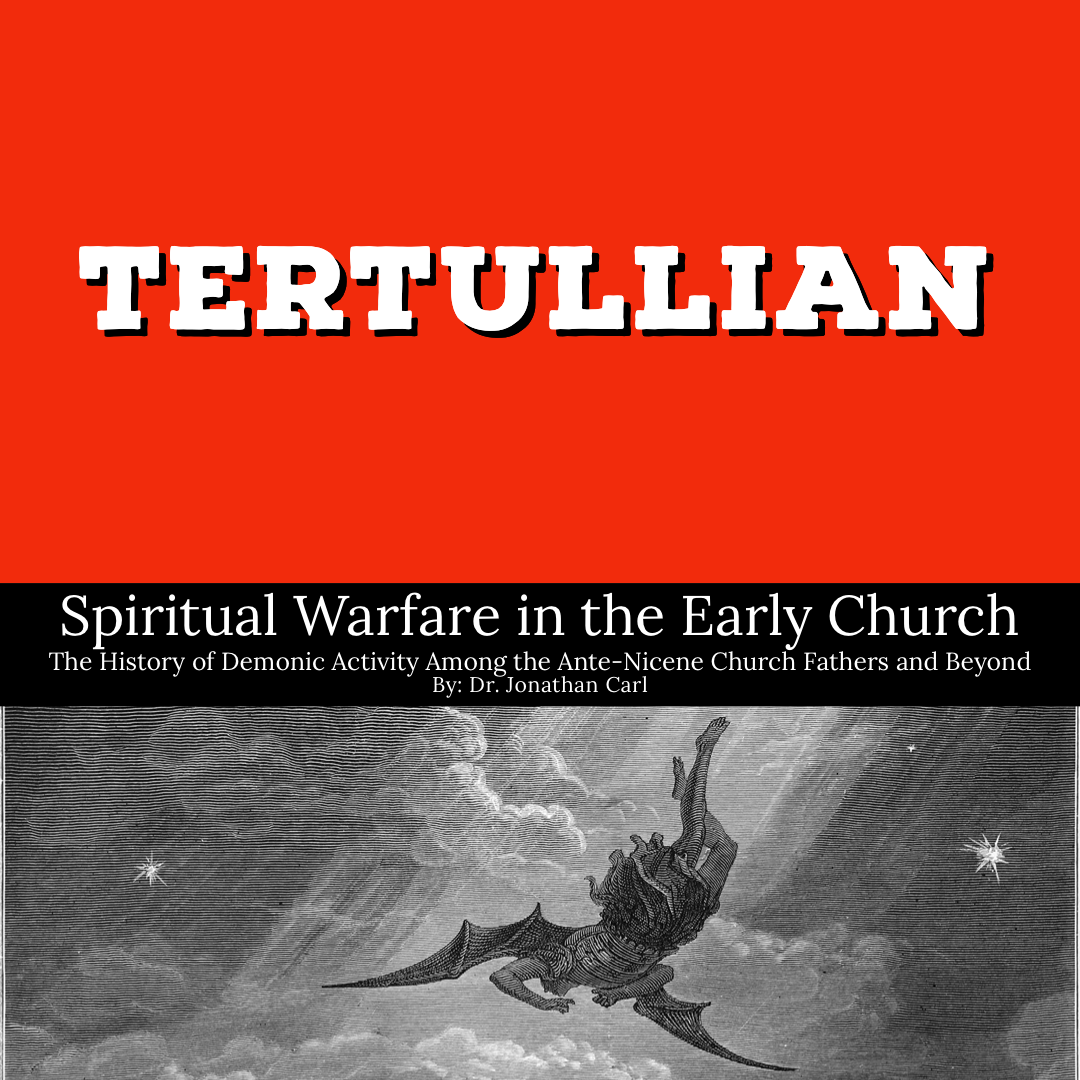TERTULLIAN
Tertullian (c.AD 145-220) was an early and extensively published author in the church.[1] In his premier work, Apology, he affirms the existence of demons, saying that they are well known by both believers and philosophers. He mentions Socrates himself as self-attesting to a relationship with a demonic spirit from childhood.[2] He emphasizes their subtleness while unashamedly seeking the ruin and destruction of mankind through disease, calamity, and temptations. He states that “we are not cognizant of their actions save by its effects” due to their invisible and intangible nature.[3] He affirms that the only “authority and power we have over them is from our naming the name of Christ, and recalling to their memory the woes with which God threatens them at the hands of Christ.”[4] It is with this fear of Christ’s judgment that demons do become “subject to the servants of God” and “at our touch and breathing . . . they leave at our command the bodies they have entered, unwilling, and distressed, and before your very eyes put to an open shame.”[5] Historian, Henry Kelly, explains that “No one was more aware than Tertullian of the demonic influences that surrounded the people of his day.”[6] Tertullian, in his lengthy description on repentance and baptism, places great emphasis on the confession of sins.[7] Kelly summarizes Tertullian’s understanding of how to fight the demonic, writing,
Tertullian did not indicate the existence of, or feel the need for, any special rite designed to set men free from the demonic influence when they became members of the Christian community—in addition, that is to the act of renunciation, and, of course, baptism itself.[8]
Tertullian’s description of exorcism is consistent with an emphasis on the power of Christ’s name with minimal focus on human power techniques. The power lies in the truth of God contained in the name of Christ. The vast scope of Tertullian’s writings necessitates much greater attention than this section allows.
[1]Allan Menzies, “Introductory Note to Tertullian” (ANF 3:3), accessed December 30, 2013, http://www.ccel.org/ccel/schaff/anf03.iv.ii.html.
[2]Tertullian, The Apology, (ANF 3:17), accessed December 30, 2013, http://www.ccel.org/ccel/schaff/anf03.iv.iii.html.
[3]Ibid.
[4]Tertullian, The Apology, (ANF 3:36).
[5]Ibid.
[6]Henry A. Kelly, The Devil at Baptism: Ritual, Theology, and Drama (Eugene, OR: Wipf and Stock, 2004), 107.
[7]“They who are about to enter baptism ought to pray with repeated prayers, fasts, and bendings of the knee, and vigils all the night through, and with the confession of all bygone sins, that they may express the meaning even of the baptism of John: ‘They were baptized,’ saith (the Scripture), ‘confessing their own sins.’ To us it is matter for thankfulness if we do now publicly confess our iniquities or our turpitudes: for we do at the same time both make satisfaction for our former sins, by mortification of our flesh and spirit, and lay beforehand the foundation of defences against the temptations which will closely follow. ‘Watch and pray,’ saith (the Lord), ‘lest ye fall into temptation.’” Tertullian, On Baptism (ANF3:669), accessed December 30, 2013, http://www.ccel.org/ccel/schaff/anf03.vi.iii.i.html. Corresponding scriptures are found in Matthew 3:6 and Mark 1:5.
[8]Kelly, The Devil at Baptism, 107.
